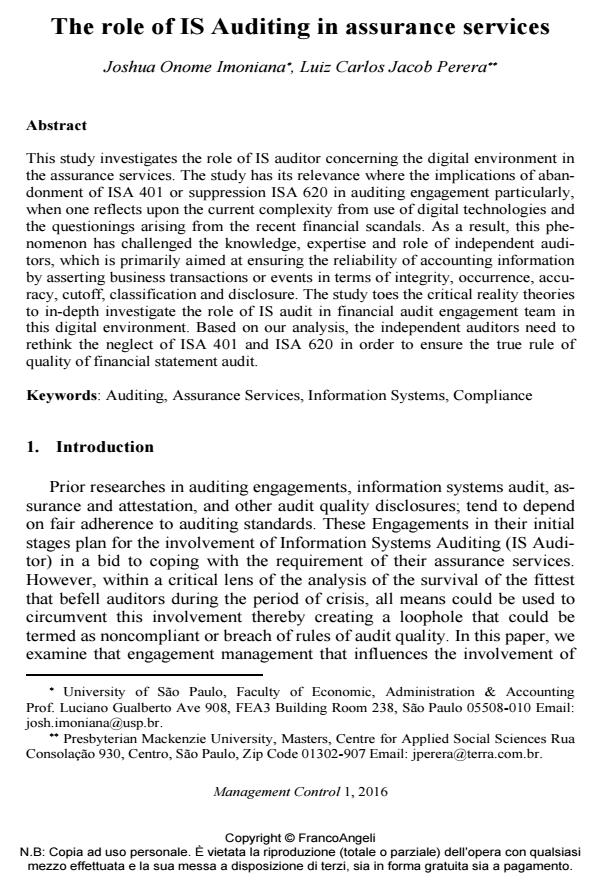The role of IS Auditing in assurance services
Journal title MANAGEMENT CONTROL
Author/s Joshua Onome Imoniana, Luiz Carlos Jacob Perera
Publishing Year 2016 Issue 2016/1
Language English Pages 17 P. 17-33 File size 81 KB
DOI 10.3280/MACO2016-001002
DOI is like a bar code for intellectual property: to have more infomation
click here
Below, you can see the article first page
If you want to buy this article in PDF format, you can do it, following the instructions to buy download credits

FrancoAngeli is member of Publishers International Linking Association, Inc (PILA), a not-for-profit association which run the CrossRef service enabling links to and from online scholarly content.
This study investigates the role of IS auditor concerning the digital environment in the assurance services. The study has its relevance where the implications of abandonment of ISA 401 or suppression ISA 620 in auditing engagement particularly, when one reflects upon the current complexity from use of digital technologies and the questionings arising from the recent financial scandals. As a result, this phenomenon has challenged the knowledge, expertise and role of independent auditors, which is primarily aimed at ensuring the reliability of accounting information by asserting business transactions or events in terms of integrity, occurrence, accuracy, cutoff, classification and disclosure. The study toes the critical reality theories to in-depth investigate the role of IS audit in financial audit engagement team in this digital environment. Based on our analysis, the independent auditors need to rethink the neglect of ISA 401 and ISA 620 in order to ensure the true rule of quality of financial statement audit.
Keywords: Auditing, Assurance Services, Information Systems, Compliance
Joshua Onome Imoniana, Luiz Carlos Jacob Perera, The role of IS Auditing in assurance services in "MANAGEMENT CONTROL" 1/2016, pp 17-33, DOI: 10.3280/MACO2016-001002